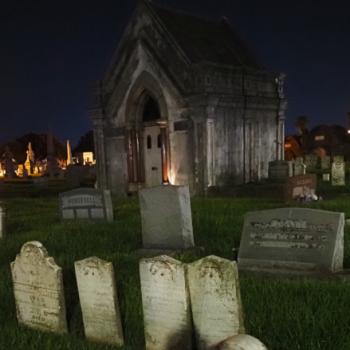I am wading into dangerous water by writing about interim ministry. There are thirty-year-old networks devoted to the training of interims (http://imnedu.org/). There are national conferences devoted to the issues faced by interims and the skills that they need (http://imnedu.org/annual-conference/). And the practice is common across a number of mainline denominations, including my own.
In addition (and I want to be heard loud and clear on this point), I count a number of interim ministers and priests among my good friends. They are gifted and talented in their own right. The best of them pay careful and close attention to the needs of the parishes that they nurture; and they do the best that they possibly can to prepare congregations for the next chapter of their ministry as they await new full-time leadership. So, my quarrel is not with them.
Nor do I believe that there are no uses for interim ministry. Churches that have had long-tenured leadership and troubled parishes that have been rocked by abuse or tragedy may well need that kind of care and nurture.
But in the name of raising a question for discussion that I don't see engaged often enough, I want to ask the question and offer an answer. Then let the debate begin.
Here's the question: Have we started relying too heavily and reflexively on interim ministry?
And here's my answer: Having lived and worked in a number of settings across the church, "yes." Let me elaborate:
One: There is too much "fallow time" invested in interim ministry. Transition is a time of uncertainty and (to be sure) there is something to be said for what William Bridges calls "the neutral zone." But, in the name of making interim ministry more predictable for denominational leaders and interims themselves, interim ministry has taken on a fixed character in many quarters. Fixed interims of a year or so leave churches in a holding pattern with many members taking a "wait and see" attitude toward the parish. That may not be right and one might argue that committed members of a parish ought to be willing to hang in there, but many don't. And much of that wait-and-see attitude is fueled by the realization that the old direction of the parish is unlikely to continue and the new direction for the parish is an unknown.
Two: That wait-and-see attitude is expensive. It means that some withdraw their participation and their financial support. It also means that visitors bracket their commitment to their new parish home, because they don't know who will be in charge in several months. Again, we might moralize with people about being too focused on "the cult of (rector's or the pastor's) personality," but (truth be told) leaders make a difference.
Three: An extended interim creates a situation in which parishes navigate their attachment, not just to the past, but to two different versions of the future: the one implicitly lived out with the interim and the one offered by the new priest or pastor. There is no doubt that the best of interims are clear about their role and the best also eschew the kind of attachment that will sabotage or undermine the next leader. But it is human nature for a parish to size up the contribution made by the interim and, potentially, to attach themselves to the interim as their de facto priest or pastor. That leaves the new hire to navigate not only the past regime, but the interregnum as well and that dynamic makes it that much more difficult to move forward.
Four: Ritualized interim ministry ignores the very particularity of a community's needs that the community supposedly re-examines during the interim. I've heard an increasing number of parishes say, "We are moving in a positive direction, we know our strengths," only to have the leadership on the next rung up insist that they need outside help. The situation is analogous to our attachment to consultants and, like consultants, the truth is that an outsider-expert might be helpful and he or she might not be. The somewhat magical and gnostic assumption that an outside expert knows better than the community what the community needs runs a number of risks: A) Dependence on an expert can alienate passionate, committed parishioners who are already keenly aware of their church's needs. B) It can stall the movement of a growing parish by placing all activity on a tentative footing. And, C) if the wrong interim is appointed (as with the wrong kind of consultant), then at best a parish will be told what it already knows or it will be subjected to a potted version of what the interim thinks every parish needs to do.





